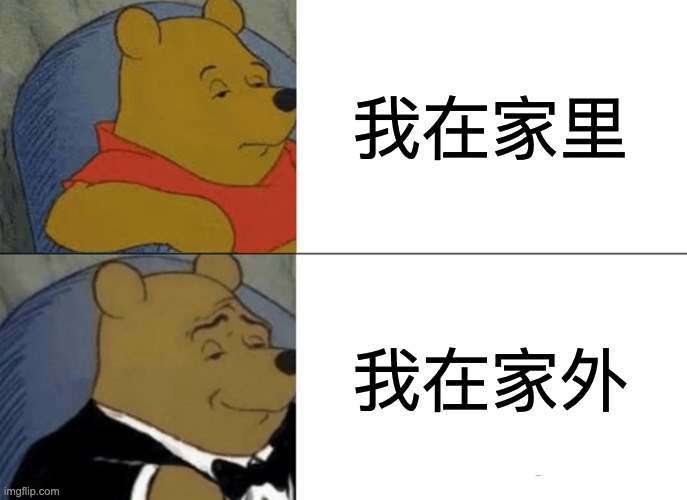The In’s and Out’s of Mandarin || 里 and 外
Note: If you are new to characters or generally want some support while working through the example sentences in the next sections, we HIGHLY recommend downloading this plugin*! It will help a ton with character reading, both in this article, and on the greater web in general. If you’ve already installed it, carry on! :)*
里 and 外 are fundamental antonyms that all beginning Chinese learners come across. In this blog post, we’ll cover the main uses of 里 and 外. Let’s get to it!
TLDR
里 means “in”, 外 means “out”
The characters can be used to say “inside” and “outside”
Both characters can also be used in higher-level ways
The Meanings
Let’s get straight to the point:
里 means “in” and 外 means “out”; it’s really as simple as that!
Here are some ways to remember the definitions:
里:The traditional form of 里 is 裡, which has the radical for clothing 衣 and the radical 里 giving the sound “li”. The original meaning of this character was “interior lining of cloth”. 👗 It was later expanded to mean “inside” in general.
外:In the original form of this character, the right hand 卜 radical was meant to indicate cracks on the “outside” of a turtle shell 🐢. The left hand 夕 radical was originally 月 (yuè), which gave the character’s sound.
“Inside” and “Outside”
A very fundamental use for the characters 里 and 外 is to say “inside” and “outside”
The words “里面” and “外面” can be used to indicate “inside” and “outside” of something, respectively.
Let’s break down the words:
We have 里/外 + “面“, a character that can mean “side”, so these words literally mean “inside” and “outside”
Note that while 里面 and 外面 are perfectly fine to use, you can also substitute the “面” with “边”, a character that also can mean “side”.
This forms the words “里边“ and “外边“, which also mean “inside” and “outside”, respectively. In my experience, I’ve seen 里面 and 外面 more frequently used among native speakers in conversation and writing.
Here’s an example sentence:
“我在超市里面” - “I’m inside the supermarket”
里 and 外 can also be used by themselves to mean “inside” and “outside”:
“超市里有很多蔬菜“ - “The inside of the supermarket contains a lot of produce”
“教室外有个学生” - “There is a student outside the classroom”
*Fun Fact: “外“ is also used in the words for maternal grandfather and grandmother, 外公 and 外婆. Here’s why:
Originated due to traditional Chinese culture
A mother usually lived with her husband’s family
As such, your mom’s parents were usually “outside” of your household
Higher-Level Uses
里 and 外 can be used in interesting ways in sentences and words that convey more abstract, higher-level meanings.
Here are some example higher-level sentences with 里:
“这个情况在你的手里” - “This situation is in your hands”
“这个话题不再我们讨论的范围里” - “This topic is not within the scope of our discussion”
Here are some higher-level vocab words formed with 外. Let’s take a look 👀
另外 - In addition, besides
外国 - Foreign country, with foreign coming from “outside”
之外 - Excluding, not taking something into account
To Conclude
Here’s the main takeaway from this post: 里 means “in”, and 外 means “out”. These characters can be used to say “inside” and “outside” and can also be used in higher-level ways.
NOTE: Here are some minor meanings for 里 besides “in” in case you’re interested
Interior lining of clothing
A Chinese mile (~500m)
A neighborhood
Try out this quiz to test your knowledge!


